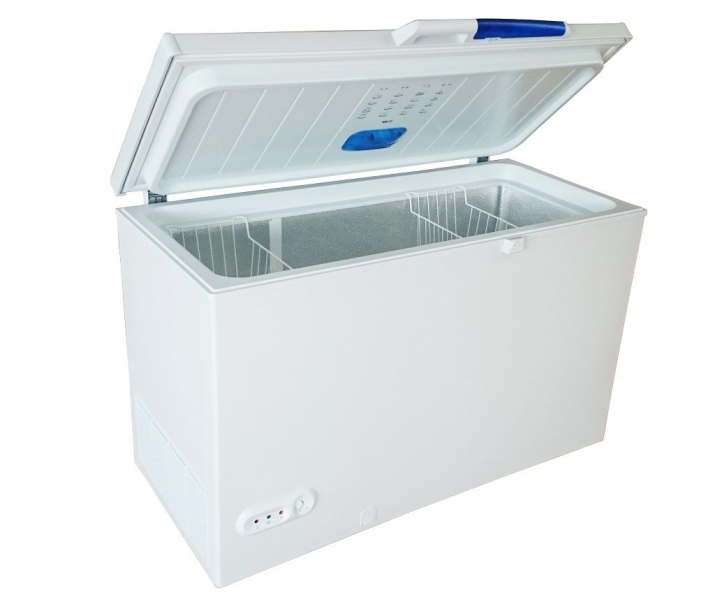Unlocking the Prospective: Just How Solar Fridge Can Transform Your Power Consumption
The development of solar fridges provides a compelling chance to reshape our approach to energy consumption. By efficiently utilizing eco-friendly solar energy, these systems promise not only to lower reliance on standard power sources but additionally to improve food conservation and protection, especially in underserved areas.
Exactly How Solar Refrigerators Work
Solar refrigerators run by taking advantage of solar power to power their cooling devices, efficiently utilizing renewable sources to keep reduced temperatures. These systems commonly contain photovoltaic (PV) panels that transform sunlight into power. This electricity is then made use of to run the compressor, follower, and other components necessary for refrigeration.
The main device in a solar fridge is the vapor-compression cycle, similar to conventional fridges (solar refrigerator). The compressor presses cooling agent gas, raising its temperature and stress. This gas after that travels through a condenser, where it launches warm and condenses right into a fluid state. The liquid cooling agent streams right into an expansion valve, where it quickly expands, cooling down before entering the evaporator. In the evaporator, the refrigerant takes in warmth from the inside of the refrigerator, hence decreasing its temperature level.
Solar refrigerators might likewise incorporate battery storage space systems, enabling them to operate throughout non-sunny hours or in gloomy conditions. This guarantees a continuous cooling impact, making them appropriate for different applications, particularly in remote areas doing not have accessibility to reputable electrical energy. By integrating solar modern technology, these fridges add to energy effectiveness and sustainability in food storage and conservation.
Trick Benefits of Solar Refrigeration
The assimilation of solar technology right into refrigeration systems uses various advantages that extend beyond plain power financial savings. Among one of the most considerable benefits is the reduction of carbon impact. By taking advantage of sustainable solar power, these systems minimize dependence on nonrenewable fuel sources, adding to an extra lasting setting. This shift is particularly crucial in areas where electricity supply is unreliable or non-existent, enabling neighborhoods to maintain food conservation and safety and security.

In addition, the use of solar power can lead to power freedom, making it possible for users to generate their own power and lower susceptability to varying energy prices. In general, the adoption of solar refrigeration presents a multifaceted option that not only addresses power usage however also advertises ecological sustainability and boosts food conservation abilities in underserved neighborhoods.
Energy Cost Savings and Effectiveness
With the climbing prices of energy and raising recognition of environmental concerns, energy cost savings and performance have come to be vital factors to consider in refrigeration technology (solar refrigerator). Solar fridges take advantage of renewable power sources, significantly lowering reliance on conventional electricity grids. By harnessing solar power, these systems lessen power intake, making them an economically sensible choice for both domestic and business applications
The layout of solar refrigerators integrates advanced insulation materials and energy-efficient compressors, which guarantee optimum efficiency while utilizing minimal power. Lots of solar refrigerator designs likewise include programmable settings and clever technology that enable users to check and manage power use efficiently. This smart layout results in reduced electrical energy expenses and reduced functional expenses gradually.
Additionally, solar refrigerators are furnished with batteries that save excess power created during bright days, making it possible for constant operation even throughout periods of low sunlight. This ability enhances their effectiveness, making certain that food and perishable items are regularly maintained secure temperature levels.
Environmental Influence and Sustainability
Utilizing renewable resource not only improves energy financial savings but additionally substantially adds to ecological sustainability. solar refrigerator. Solar fridges run on tidy, eco-friendly energy resources, reducing dependence on fossil fuels that contribute to greenhouse gas emissions. This shift in power intake alleviates environment adjustment impacts and promotes a much healthier planet

In addition, solar fridges are particularly helpful in remote areas where electrical energy access is minimal or non-existent. By providing a viable refrigeration solution without the requirement for considerable infrastructure, they promote lasting advancement in underserved areas. This access not just improves food safety and security yet also lowers food wasting, therefore reducing waste.
Picking the Right Solar Refrigerator
Selecting the excellent solar refrigerator calls for cautious consideration of different factors to guarantee optimum efficiency and effectiveness. Examine other the power requires based on your consumption patterns. Calculate the total electrical power needed to keep your items cool down, which helps in selecting a system with an appropriate photovoltaic panel dimension to satisfy these demands.

One more vital element is the sort of solar refrigerator-- compressor or absorption. Compressor models are generally more effective and much better suited for atmospheres with varying temperature levels, while absorption fridges might be more effective for off-grid applications because of their simplicity.
Finally, ensure the system has dependable solar elements, consisting of panels, batteries, and a fee controller, to ensure long-lasting capability. By meticulously taking into consideration these factors, you can select a solar refrigerator that aligns with your energy goals and adds to lasting living.
Verdict
In summary, solar refrigerators stand for a considerable improvement in power intake, supplying a sustainable option to traditional refrigeration techniques. By taking advantage of solar energy, these systems not just lower dependence on nonrenewable fuel sources yet also enhance food security and lessen ecological effect. The combination of sophisticated modern technologies makes certain effectiveness and cost-effectiveness, promoting power independence. As the fostering of solar refrigeration rises, blog here a transformative change in the direction of cleaner power practices and minimized food waste is expected, contributing favorably to global sustainability efforts.